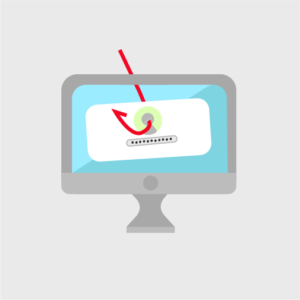E-mail Phishing Attacks
Posted on Friday, February 15th, 2019
 The College continues to experience the impact of users clicking on phishing e-mails. Within ten minutes of clicking on the links in the emails, malware is loaded onto your computer, followed by your computer “calling out” to hacktivists and criminal organizations. Then, your computer will be remotely controlled to start sending out thousands of spam messages to others all over the world – using your College email address. As you can imagine, not all recipients are going to be particularly happy about receiving the spam, and some will even send back emails to that effect. Imagine the damage to our wonderful name and brand that this can cause. It often takes many hours for ITS to clean up your e-mail account before you can have it back working as normal.
The College continues to experience the impact of users clicking on phishing e-mails. Within ten minutes of clicking on the links in the emails, malware is loaded onto your computer, followed by your computer “calling out” to hacktivists and criminal organizations. Then, your computer will be remotely controlled to start sending out thousands of spam messages to others all over the world – using your College email address. As you can imagine, not all recipients are going to be particularly happy about receiving the spam, and some will even send back emails to that effect. Imagine the damage to our wonderful name and brand that this can cause. It often takes many hours for ITS to clean up your e-mail account before you can have it back working as normal.
What is Phishing?
Phishing is the act of a cyber-criminal using false pretenses to acquire usernames and passwords, credit card information, sensitive personal information and electronic money by masquerading as a trustworthy entity in an electronic communication such as email or texting. Phishing communications often contain links to rogue websites that are infected with malicious software, which is then downloaded to your computer to conduct further cyber-attacks on College networks. The impacts of phishing can be very significant and include account and data theft, data ransomware, identity theft, loss of money, and system compromise, among others.
What Do They Look Like?
If you receive an unexpected or unusual email, carefully examine it before clicking on an embedded link or downloading an attachment.
Spelling Mistakes and Poor Grammar
Phishes often contain obvious spelling mistakes, poor grammar and incorrect email addresses. For example, instead of @algonquincollege.com, you may see something like @a1gonqu!ncollage.com.
A Sense of Urgency or Importance
In most cases, phishing attempts have a sense of urgency or heightened importance. An example could be “Your credit card has been compromised, provide us with your personal information as soon as possible to resolve the issue!” or “Your email account is about to expire – click here to request additional quota”.
Links and Attachments – Caution
Phishing emails often contain an attachment and/or link. If you were not expecting to receive an email with an attachment, do not open it. If there is a link within the email, hover over it (without clicking on it) and you will be able to determine the true URL.
Think Before You Click!
- Posted in
- Stay Informed